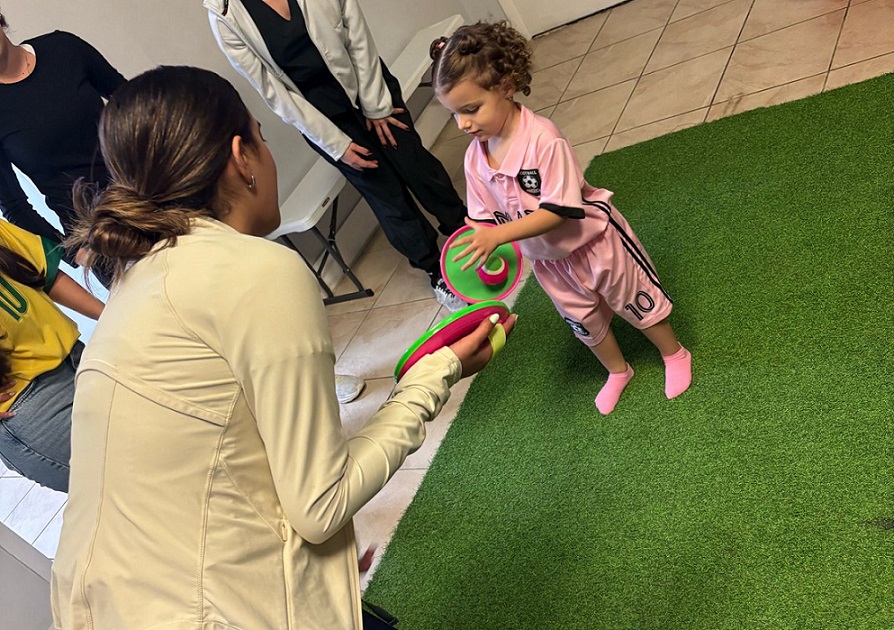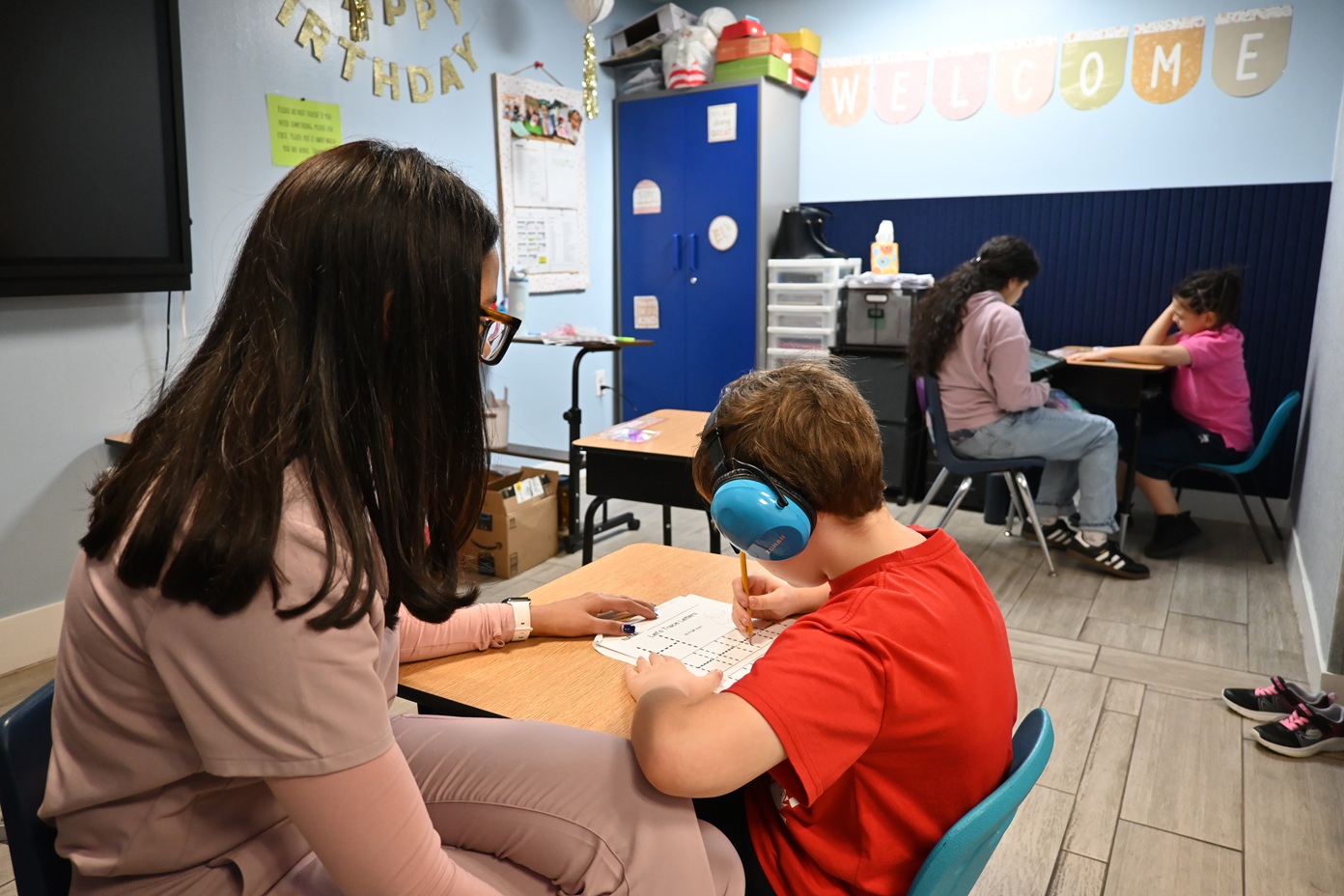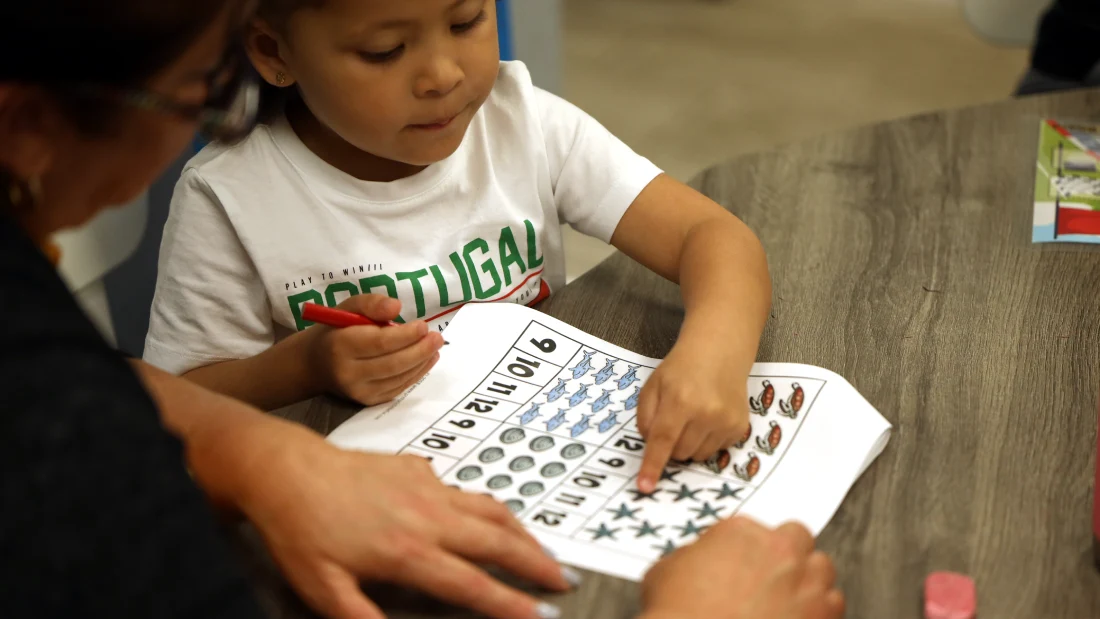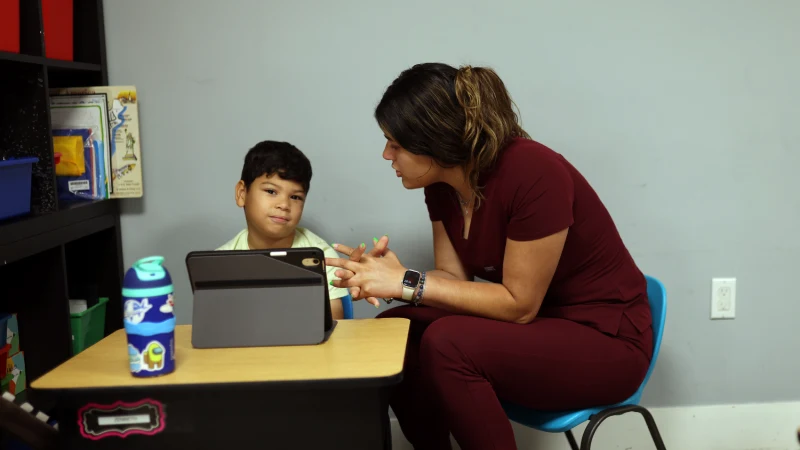Do you notice that your child has difficulties communicating? You should know that addressing language difficulties in early childhood can make a significant difference in their social development. In this sense, speech therapy for toddlers is a valuable tool that not only improves communication but also strengthens confidence from the earliest years of life.
At Koala ABA & Learning Centers, we understand that every child has a unique learning pace. Therefore, we offer a therapeutic approach tailored to their needs. Our articulation and oral motor therapies have proven effective for language processing disorders, especially in cases of Autism Spectrum Disorder (ASD).
In this article, we will explore how speech therapy for toddlers can transform lives and how to find this support in Doral, Florida. Keep reading!
What is Speech Therapy for Toddlers?
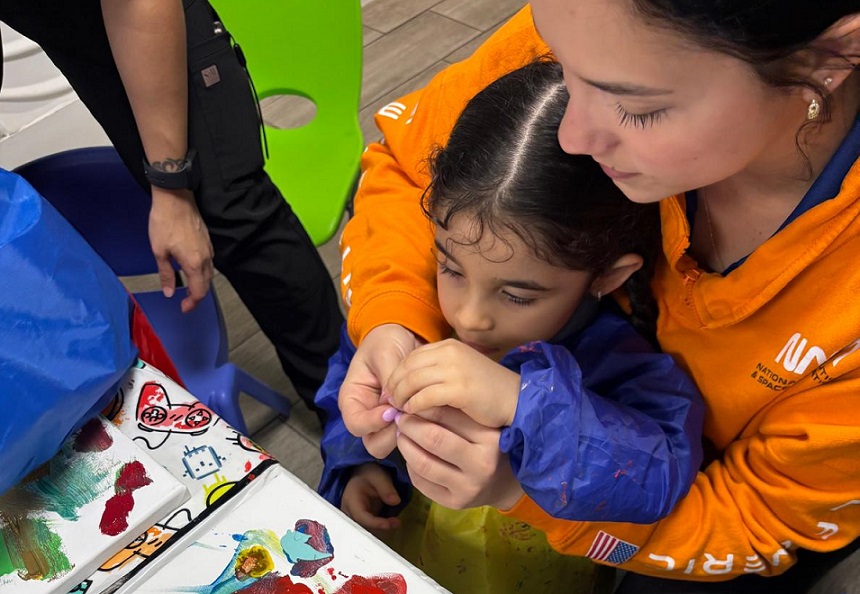
The ability to communicate is one of the most valuable skills we develop from childhood due to our social nature. However, not all children progress at the same pace in language and speech development. Thus, speech therapy for toddlers emerges as a specialized response to guide this development effectively.
Among children with ASD, language development can be highly variable. Some are early talkers, while others begin to speak much later. However, through professional support, speech therapy services not only improve pronunciation and vocabulary but also enhance social interaction and understanding of the environment.
So, what exactly is speech therapy? Here are some key points:
It is a specialized clinical discipline:
It uses therapeutic techniques to assess, diagnose, and treat speech, language, communication, and swallowing disorders.
It adapts to each stage of development:
From mild pronunciation difficulties to complex challenges related to neurological or developmental disorders, such as ASD.
It includes various areas of language:
Such as expressive language (what we say), receptive language (what we understand), verbal fluency, voice, and articulation.
It promotes effective communication:
The goal is not just to speak better but also to interact with others more clearly, independently, and meaningfully.
It integrates modern tools:
Such as augmentative and alternative communication (AAC) devices, visual supports, and multisensory methods tailored to the child.
How Does Speech Therapy Help Toddlers?
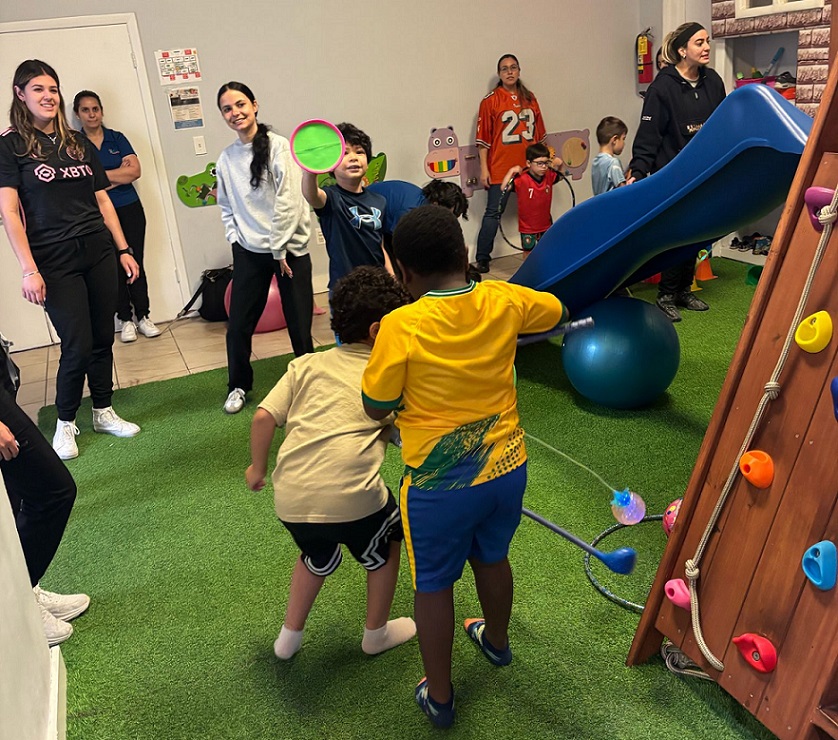
In early childhood, language development is part of a critical stage in children’s emotional and cognitive growth. Therefore, when delays or difficulties arise in these linguistic skills, speech therapy for toddlers becomes the fundamental intervention to enhance their communicative abilities.
Clearly, the goal is to teach children with difficulties how to converse with others in different social situations. Instead of “waiting for them to talk,” this therapeutic approach allows for timely intervention, guiding each child according to their individual needs and opening the door to more direct and effective communication.
How Does Speech Therapy Help Toddlers? Here are some points:
- Stimulates the development of oral and non-verbal language: The child learns to use words, gestures, and sounds to express themselves.
- Improves pronunciation and clarity of speech: It helps learn new words and correct articulatory and phonological difficulties.
- Strengthens language comprehension: Children are taught to understand others, follow instructions, and respond coherently.
- Supports social and emotional development: Children gain confidence, reduce frustrations, and improve their interaction with others.
- Facilitates integration into school environments: These children are more likely to adapt better to preschool.
- Adapts to specific needs: It is especially valuable for children with ASD, Down syndrome, or developmental delays.
What are the benefits of Augmentative and Alternative Communication (AAC)?
If a child has difficulties with oral language, the need to communicate remains essential for them. At this point, Augmentative and Alternative Communication (AAC) is a fundamental tool within speech therapy for toddlers, as it offers strategies for the child to develop non-verbal communication skills.
The benefits of Augmentative and Alternative Communication (AAC) are countless; here are just a few:
- Facilitates the expression of basic needs and emotions.
- Supports the effective development of oral language.
- Strengthens self-esteem and sense of belonging.
- Is adaptable to each child’s communication level.
- Promotes social interaction in various environments.
- Allows for much more effective early intervention.
How do Speech Therapy and Occupational Therapy Complement Each Other?
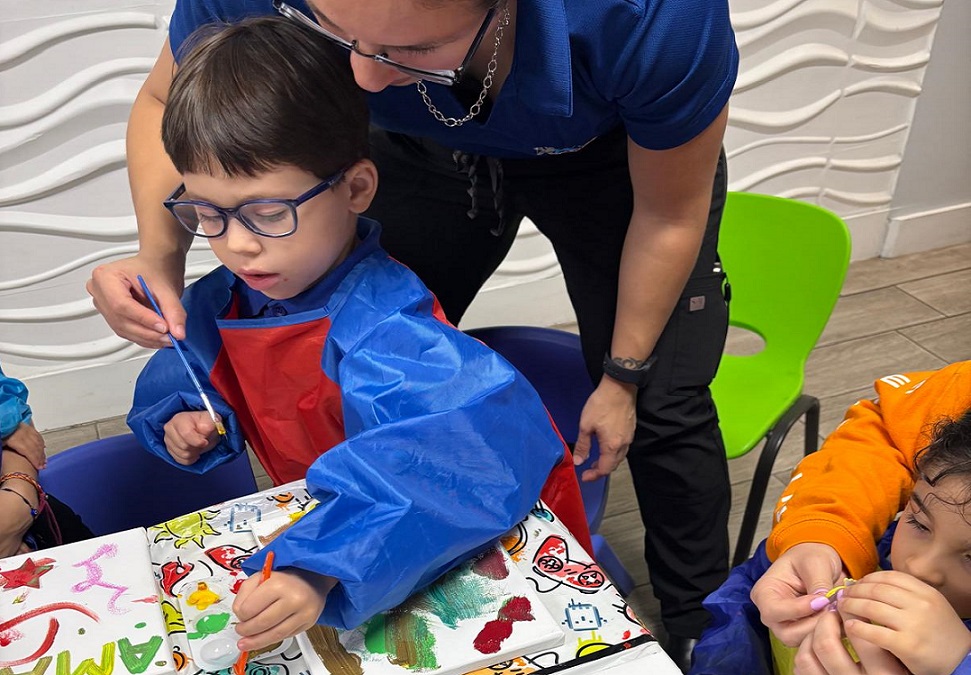
When it comes to child development, addressing each area in isolation can limit a child’s potential. Additionally, the scope of speech therapy varies from child to child and depends on their individual needs. This is why the integration of speech therapy for toddlers and occupational therapy is not only recommended but essential in many cases.
By working together, these disciplines create a comprehensive therapeutic environment that addresses communicative skills, cognitive skills, and oral motor goals. However, the services that the child needs are only determined after an initial assessment. Thus, some specialized centers translate this synergy into much more personalized progress.
Here’s a summary of how occupational therapy and speech therapy complement each other:
- Comprehensive view of the child: Speech therapy focuses on language and comprehension; occupational therapy works on coordination and self-regulation.
- Improves attention and participation: Occupational therapy helps the child be more receptive during speech therapy sessions.
- Joint work on oral motor skills: Both therapies work on strength and coordination in the muscles of the mouth.
- Strengthens autonomy and expression: Both work on how the child communicates their needs and the physical tools necessary for that.
- Support for school and family routines: Both therapies help create daily routines that improve the child’s adaptation at school and home.
How does Speech Therapy work for Toddlers with ASD?
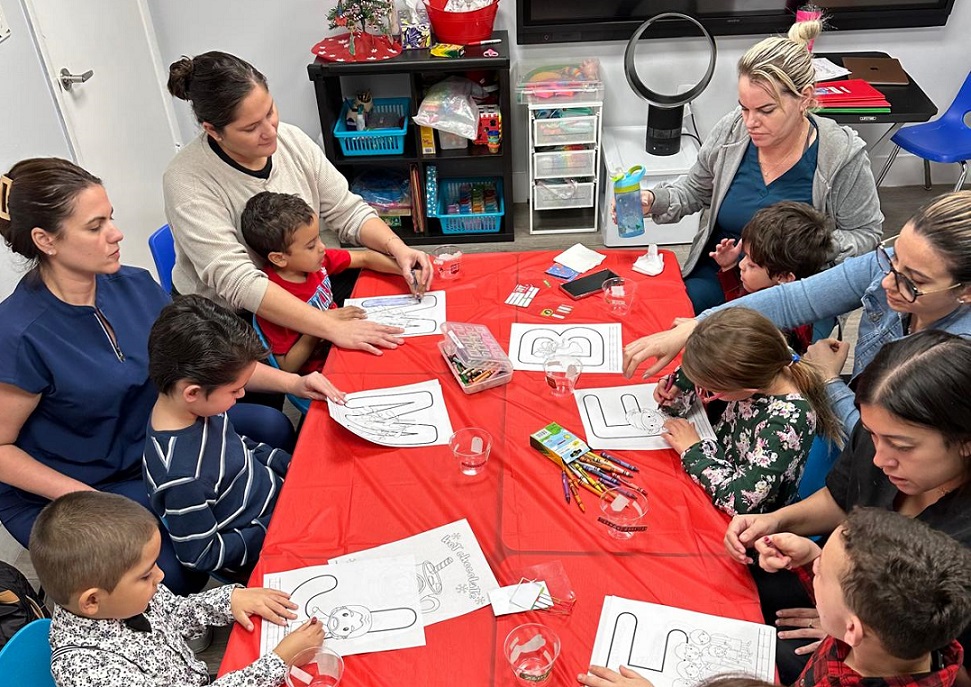
When diagnosing ASD in childhood, one of the parents’ concerns is whether their child will be able to communicate well in the future. For this reason, speech therapy for toddlers with ASD is not a generic approach. Beyond that, it is a specialized intervention that takes into account each child’s sensory, cognitive, and social particularities.
Child speech therapy involves developing skills such as understanding body language, maintaining eye contact, and using the appropriate volume when speaking. Additionally, at centers like Koala ABA & Learning Centers, evidence-based techniques are combined with structured treatments tailored to each child’s needs.
What is speech therapy like for children on the autism spectrum? Here’s how it works:
- Individualized and child-centered: The therapist tailors the sessions to each specific profile to maximize communicative progress.
- Focused on functionality, not just verbalization: The goal is effective communication, using words, gestures, or images.
- Integrates visual supports and predictable routines: Pictograms and visual boards are used to provide structure to the learning process.
- Collaborative work with other professionals: Collaboration with occupational therapists and behavior analysts is essential.
- Support for families: Parents receive guidance from speech therapists on appropriate strategies at home.
- Emphasis on social interaction: Skills such as eye contact, turn-taking in conversation, and shared attention are promoted.
Koala ABA & Learning Centers: Communication, Autonomy, and Development in One Place.
At Koala ABA & Learning Centers, we understand that every child needs an approach that goes beyond a single difficulty. That’s why we integrate Speech Therapy and Occupational Therapy to address both communicative skills and motor and sensory aspects. This therapeutic synergy allows us to build a solid foundation for your child’s social and academic development.
Both therapies complement each other to enhance the child’s autonomy and active participation in their environment. How do we achieve this?
- Through personalized assessments that identify communication barriers.
- With intervention plans that work on language and social skills.
- Using visual tools and technology that facilitate learning.
The Transformative Power of Speech Therapy for Toddlers.
Speech therapy for toddlers not only teaches them to speak: it opens doors to the world. It is a key intervention for your child to learn to express their emotions, interact with their environment, and feel understood. Yes: when a child starts communicating better, they also gain confidence and security by being able to participate.
In this way, with the right professional support, even the most complex challenges can become opportunities for growth. Thus, especially for children on the autism spectrum, speech therapy for toddlers represents an effective tool for achieving a more connected and fulfilling life.
Don’t wait any longer! At Koala ABA & Learning Centers in Doral, Florida, we are committed to helping you. Contact us today, let’s build a future for your child with more words, more connection, and more joy.
